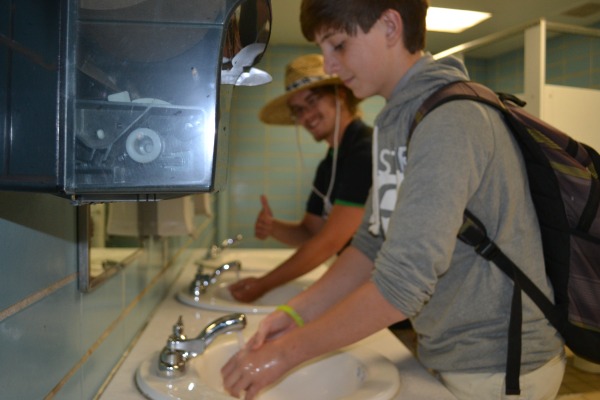Hand Washing 101

SCRUB A DUB — Jake Whitaker and Matthew Cramer take the time to wash and dry their hands.
According to evidence-based practice, hand washing is the number one prevention of the spreading of bacteria. This study also shows that antibacterial liquid such as hand sanitizer is just as effective as using antibacterial soap to prevent infections and viruses.
“Singing the ‘Happy Birthday’ song twice from beginning to end is the approximate time you should spend washing your hands. If you’re ever at a doctor’s office or hospital, you should make sure your nurse or doctor washes their hands because any illness the patient before you had can spread to you. Hand washing should be taught to children as early as they are able to understand,” recent Chattanooga State RN graduate Angela Scarbrough stated.
When leaving the restroom, after washing your hands, you should turn off the sink and open the door with a paper towel. Frequent use of hand sanitizer is recommended if you do not have access to antibacterial soap and water.
“If everybody would use proper hand washing techniques, we would be able to decrease the amount of infection. People don’t wash their hands enough because they forget everything you touch someone before you has touched,” explained Angela Scarbrough.
“Washing your hands is important! That’s why everybody in school gets sick at the same time, because nobody washes their hands. Washing your hands around eight times a day sounds like a good way to keep the germs away,” shared Hannah Holmberg, a student at Central High School.
Nearly 22 million school days are lost each year to the common cold. Keeping hands clean is one of the most important steps we can take to fight colds and the flu, according to the Center of Disease Control and Convention.




